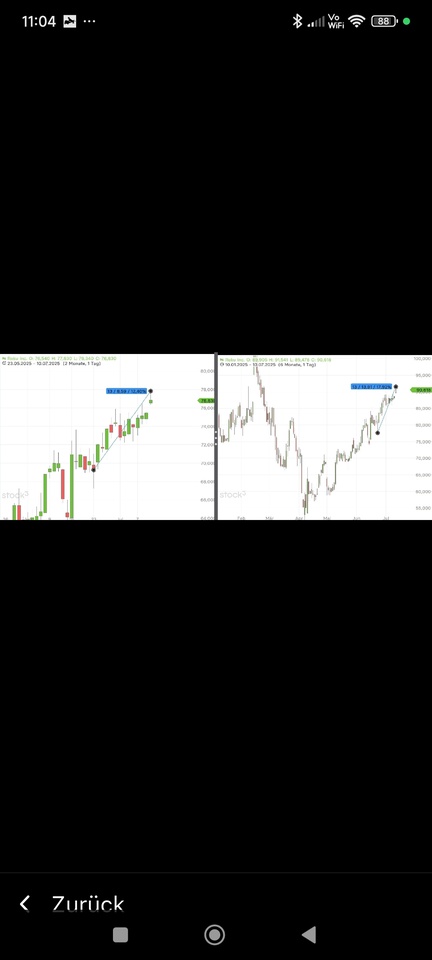I have often traded positions directly in the USA. Now I have also set up a USD account with Flatex.
In the comparison below as an example for $ROKU (-5.71%) you can see the difference in performance very clearly. On the left on a € basis and on the right on a $ basis. That's about 5% less return in € over the short term.














